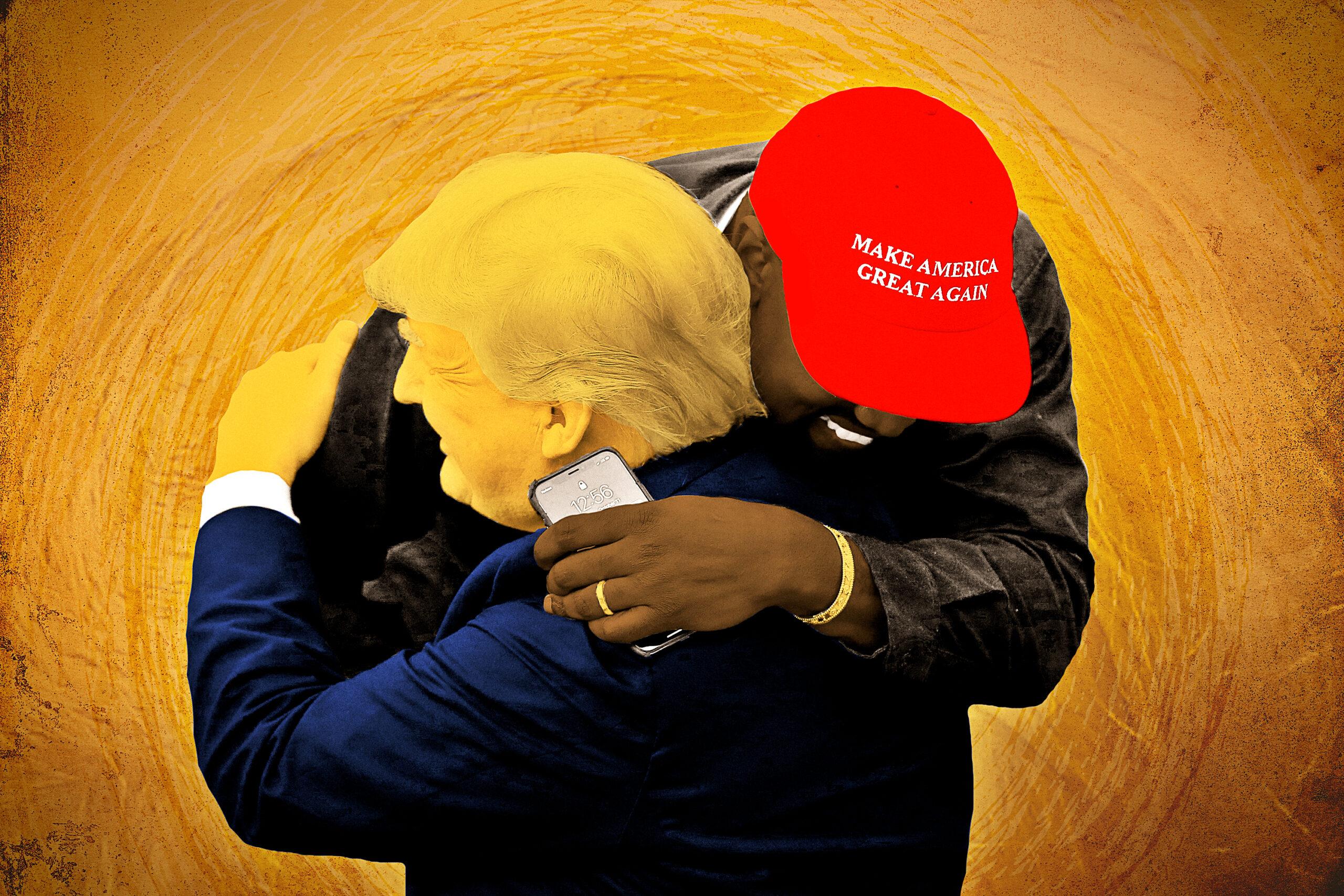
After alternating between griddling pancakes and clearing fallen oak trees in the aftermath of Hurricane Katrina, which our family home got far from the worst of, I remember when we finally got the TV back. We’d read about the carnage, but it was another thing entirely to see the aerial shots on cable news; the I-10 westbound smashed to pieces, a city underwater, families that looked like mine stranded on rooftops. You know now that the national response was neither swift nor sufficient, and that the effects of Katrina still linger in Southern Louisiana to this day. So yes, let me be the millionth person to note how cathartic and exciting it was to see Kanye West stand next to Mike Myers and nervously declare to the world that president George W. Bush did not care about black people.
This was forever ago now. The past two years alone have felt a decade long at least—and a sad, exhausting exercise in turning the significance of Kanye, and of Kanye on that telethon, inside out. He’s developed an attachment to his (now redesigned) Make America Great Again hat, which he seems to think functions against “thought police” as Magneto’s helmet did against Professor Xavier’s suggestive brain waves. He’s become a glossy figurine for conservative pundits and politicians to move around their big, sociopolitical Monopoly board. His short, exacting truths meant to nudge the world toward a better version of itself have, in 2018, fully spoiled into weird, spiraling cluelessness about structural racism, mental health, incest, and what happens after a woman undergoes plastic surgery. Two weekends ago, he performed on SNL with Lil Pump while dressed as a Perrier bottle. He followed this up with a tweet-long briefing of a conversation he’d had with his father, during which they invented recycling. He then suggested that we abol—*ahem*—amend the 13th Amendment. West mercifully deleted his Twitter and Instagram accounts soon afterward, but on Thursday—just hours after the late Leonard Cohen dissed him from the grave—he turned up at the White House for a tête-à-tête with his “brother” and fellow “matrix-breaker” Donald Trump.
He was meant to be there earlier to attend the signing of the Music Modernization Act, a bill that aims to update music copyright law for the digital streaming era to ensure artists are compensated fairly. West narrowly missed a photo op with Grammy president Neil Portnow, Kid Rock, and Beach Boys cofounder Mike Love, who credited Trump as a “big supporter of some of the best music America has ever made” and someone who apparently “tried [his] best to get Whitney Houston in some kind of shape.”
But it seemed West, who later spoke for 10 uninterrupted minutes in the Oval Office, refused to let Love lay claim to the most airheaded things uttered in the White House by a guest that day. He spoke of the 2016 election, saying that he loved Hillary Clinton—he loves everybody—but he related most to Trump’s “male energy.” He talked about U.S. manufacturing. He showed Trump rough sketches for a hydrogen-powered iPlane, which West encouraged the president to commission from Apple.
All of this would be concerning, were any of it surprising. Perhaps before, but certainly at the moment, Kanye has no politics, no adhering philosophy, no purpose other than to be a bizarro polemicist. There is no thread connecting any of his provocations nor his unwieldy philanthropic ventures that—with a few concrete exceptions—amount to little more than an excuse for him to feel good for some small amount of time. (He and Donda’s House have reportedly cut ties.) Taken together, it’s not even possible to project a coherent message onto them. He’s not campaigning for anything, he’s just … campaigning.
The question is, where does this end? How long can you sustain relevance on shock value alone? How long until the returns diminish to nothing? No one might have specifically predicted Kanye would give Charlie Kirk a pair of Yeezy Wave Runners or deliver a “keynote” atop a table in a Georgetown Apple store, but Kanye’s media antics, in wide frame, have settled into an observable pattern. At least the same check dance plays out among exasperated onlookers every time. There will be an inciting incident, 1,000 quote tweets, 1,000 think pieces, and we will come to the same conclusion: Kanye aims above all else to stay in the conversation and will do so at any expense, whether that be to himself or to his fans.
Which is to say that Kanye walking back his famous 2005 criticism of George Bush, which meant so much to me and many others, as a by-product of a “victim mentality,” wasn’t surprising enough to be upsetting. Nor was I confused. I didn’t feel much of anything at all, really.
Like his role model, Donald Trump, West is now just another moneyed narcissist living an increasingly singular life. It is difficult to be anything but bored by him at this point. He has long had nothing useful to say about anything, which includes his telethon outburst, one of the most meaningful moments of his career. He does, however, have an album coming out in a few weeks’ time—which, not for nothing, is named for another man with questionable views on race—and would very much like your attention please.